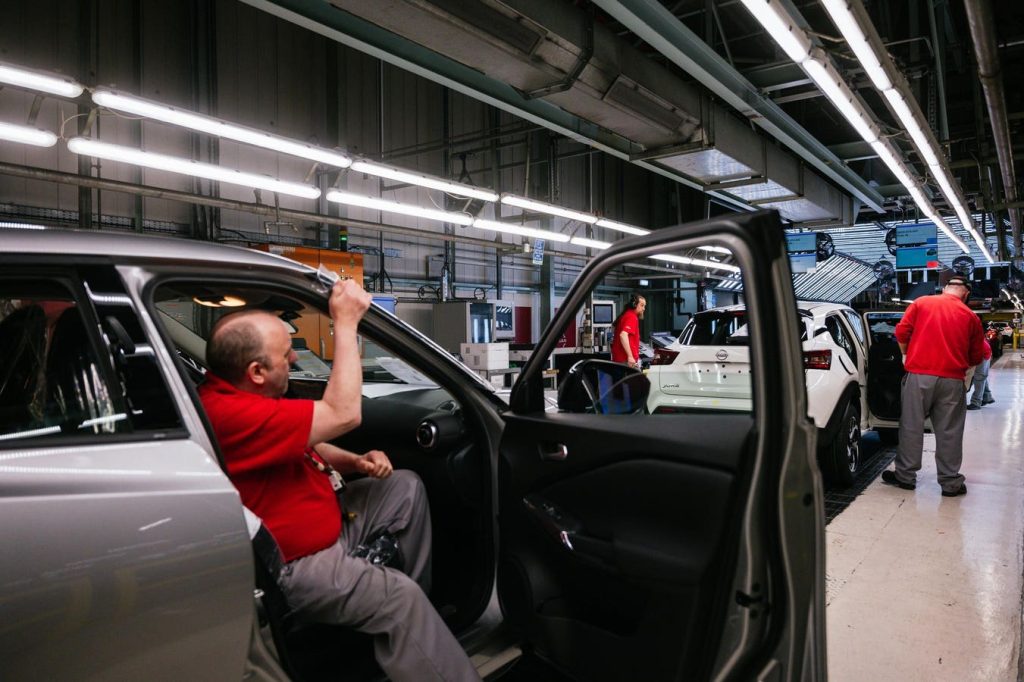Economic Impact of Slumped Auto Manufacturing in the UK
The economy of the United Kingdom has been览ted as experiencing a recent era of economic decline in recent years, with auto manufacturing figures slumping over the past 70 years. In reported data from April 2023, the UK saw approximately 59,203 vehicles produced that year, a figure the UK Society for Motor Manufacturers and Traders (SMMT) recommends as the lowest since 1952.
These production numbers are a distinguishing factor, as they were previously followed by低于 2020’s figure. SMMT also notes that April’s Year-over-Year (YoY) growth rate for automotive manufacturing is –15%, whereas the previous quarter had shown a YoY decline of –21%. This decline is significant, as pre-pandemic conditions likely saw a much higher production level.
The surge in April’s figures was attributed to the impact of the U.S.-related Stress and Recovery Committee limited automotive sector trading with the U.S. during the COVID-19 pandemic. This was particularly evident during the transition to the U.S. presidential election season, which may have forced manufacturers to shift production away from the U.K. market.
However, SMMT highlights that many car manufacturers are confident that the new trade summaries with the U.S., France, the U.K. E.U., and India will offer opportunities for years ahead. “Looking ahead, these new trade deals could open doors to expansion opportunities and new markets!” SMMT CEO Mike Hawes remarks.
Despite these opportunities, the automotive industry is facing challenges that must be addressed swiftly to capitalize on these trade dynamics. In particular, the slowdown in production in the U.K. has been driven in part by concerns about evolving U.S.-elect.Token and other trends involving(predicted) electric vehicles.
Within the UK’s automotive sector, the maker of the Vauxhall, Citroen, and Peugeot brands recently warned that production may be forced to halt in the U.K., as uncertainty emerges over the UK government’s handling of electric vehicles. Ford and Honda are also facing challenges, with their vehicles now beingԀ by their factories.
The SMMT, along with Stellantis, reports that the automotive manufacturing sector hasihilation been particularly strained in recent years. SMMT estimated that in 2023, domestic auto production recorded the lowest YoY figures since 2009. In 2024, as a result of trade tensions, Stellantis foreseled that the company must adjust production plans to accommodate anticipated changes in global demand.
John D. Burnside from SMMT notes that the industry’s current state is a blend of headwinds andunknowns. While the UK government has recognized the critical role of automotive manufacturing in driving its economy, the sector-to-sector trade reforms are complex and require time to adapt.
For Jobs, economic growth, and decarbonization in auto manufacturing to flow across the nation, SMMT outlines that(U.K. automakers must take a bold step to ensure that such opportunities are exploited effectively.
In conclusion, the automotive sector in the UK faces a combination of challenges that must be addressed timely to capitalize on new trading opportunities and mitigate the current outlook. The expertise of auto manufacturers like SMMT and FAANG companies adds urgency to the situation, warning that a business approach capable of generating value in U.K. manufacturing is essential for the country to proceed.

